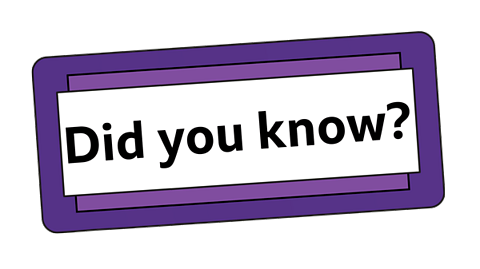Key points
- Too much sugar can cause life-threatening diseases such as type 2 diabetesA disease more common in older people where person's body cells no longer respond to insulin produced by the pancreas.
- Should children be allowed to take this risk? Or is the pleasure from sugary drinks worth it?
Watch
Watch this video and consider the question: Should sugary drinks be banned for under-18s?
Watch a short intro to the debate: should sugary drinks be banned?
Should sugary drinks be banned for under-18s?
UK children are consuming on average three times the amount of sugar they should be, more than anywhere else in Europe. And a quarter of their intake of sugar is from fizzy drinks. Excess sugar can lead to tooth decay, hyperactivity, weight gain and even chronic life-changing diseases, like diabetes.
Sugar stimulates the same pleasure centres in the brain as addictive substances like nicotine, which can result in withdrawal symptoms and cravings if taken away. The government is so worried, it is increasing the price of sugary drinks to put children off buying them. But flavoured drinks can also introduce children to the taste of fruit and encourage them to drink more fruit juices and eat more fresh fruit as part of their diet. And instead of forcing them, shouldn't children be taught to make their own informed choices about what they drink and eat.
With all this knowledge, do you think sugary drinks should be banned for under-18s?
Discuss
Controversial issues in science make for great discussion topics. The following video shows students your age expressing a range of opinions about whether or not sugary drinks be banned for under-18s. Get together with your friends and discuss the issue!
Listen to secondary students debating the issue and join in the debate. What do you and your friends think?
Should sugary drinks be banned for under-18s? Excess sugar can lead to tooth decay, hyperactivity, weight gain and even chronic life-changing diseases, like diabetes.
I know so many people that suffer from tooth decay, including myself.
It's good for the dentist, but not good for our point of view.
Certain sugary substances can cause people to have sugar spikes in their blood.
I knew you could get diabetes if you eat too much sugar, but then I don't really eat that much, but then other people do. And when they do, they don't really think when they buy it.
Some forms of diabetes, you can't produce enough insulin, so then you can't break down the sugars.
I had a can of pop earlier today. I'm going to - I feel really guilty now for having lots of sugar.
Do you drink much of it?
I wouldn't say much, but once a week at least.
How often do you drink sugary drinks?
About three times a week, maybe.
Three times a week? That's less than average. I drink twice a day, so that means I'm having 30 teaspoons of sugar. That's a lot of sugar.
Sugar stimulates the same pleasure centres in the brain as addictive substances like nicotine, which can result in withdrawal symptoms and cravings if taken away.
Isn't being addicted is like you can't live without it? Not being able to live without sugar…
You hear so much about people being addicted to cigarettes, people being addicted to drugs -
Yeah like gambling and stuff.
You wouldn't think of an everyday thing like sugar.
The government is so worried, it is increasing the price of sugary drinks to put children off buying them.
I think increasing the price of sugar is a great idea, because then not much people would suffer from these diseases, and the NHS would save money as well.
If you put the price up, then if people are that addicted then they will pay those prices. And then they will then lose more money and it will just get worse and worse for them.
People under 12, or maybe like little kids, that's all they want is sugar. So they can't really make a proper decision. But people that have a better awareness, and people that know what is good or bad for you, I think they should always be able to decide how much they have.

- A single half-litre bottle of fizzy drink can contain 15 teaspoonfuls of sugar - more than twice the recommended daily amount.
- If you regularly consume too much sugar you increase your risk of obesity, tooth decay and type 2 diabetes.

GCSE exam dates 2025
Find out everything you need to know about the 2025 GCSE exams including dates, timetables and changes to exams to get your revision in shape.

More on Health and disease
Find out more by working through a topic
- count2 of 5

- count3 of 5

- count4 of 5
